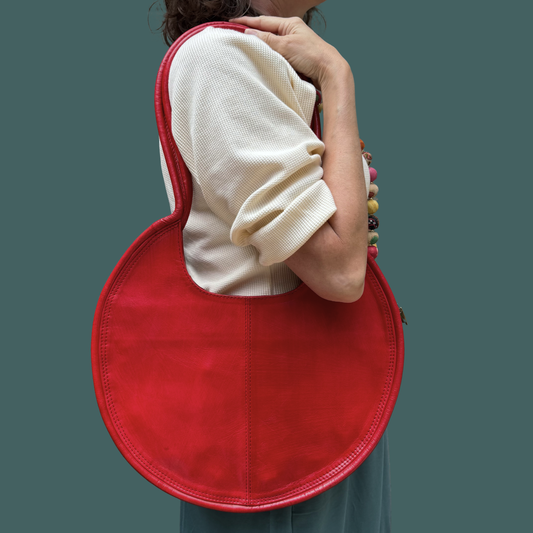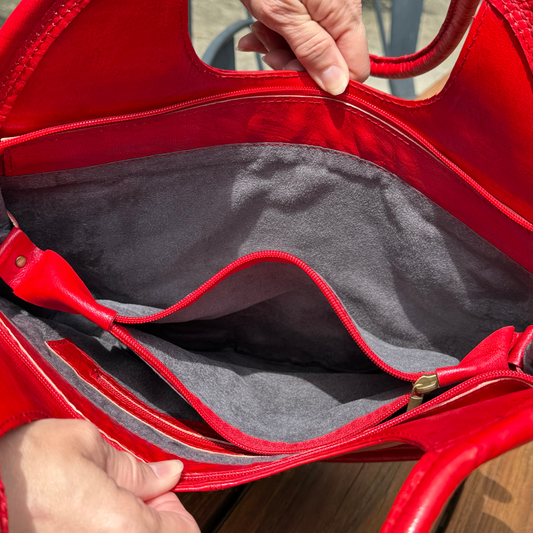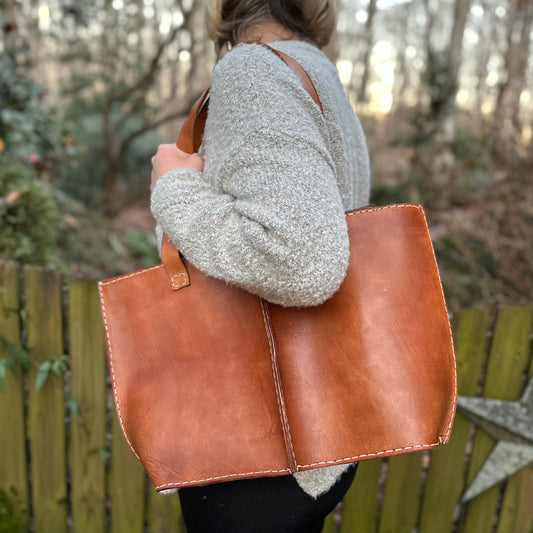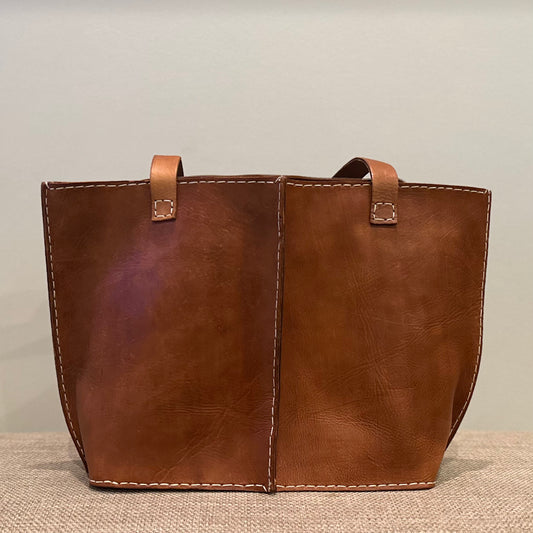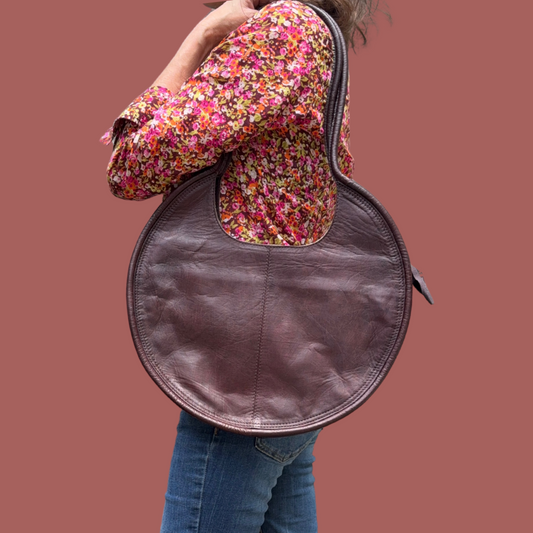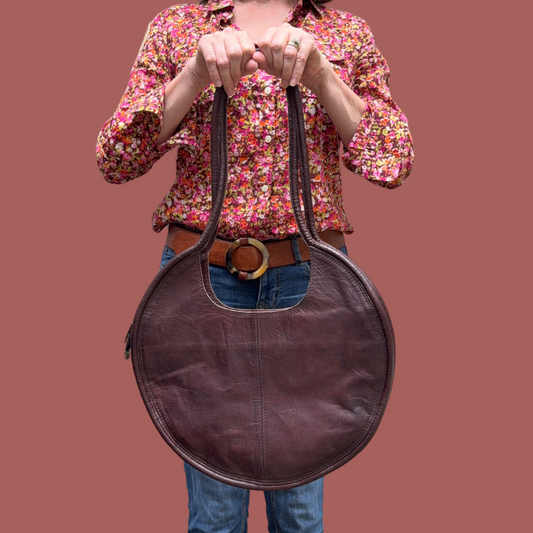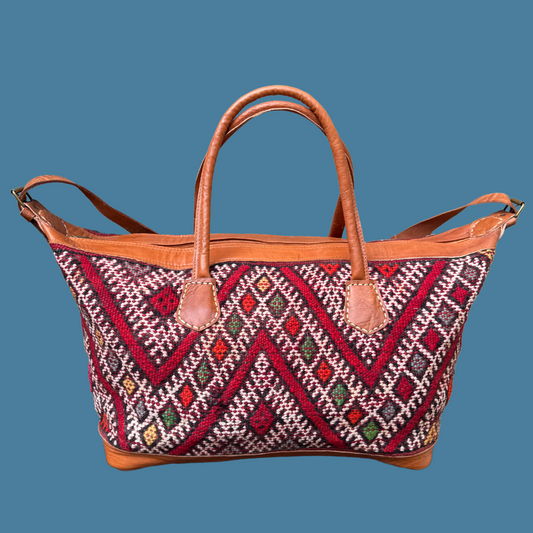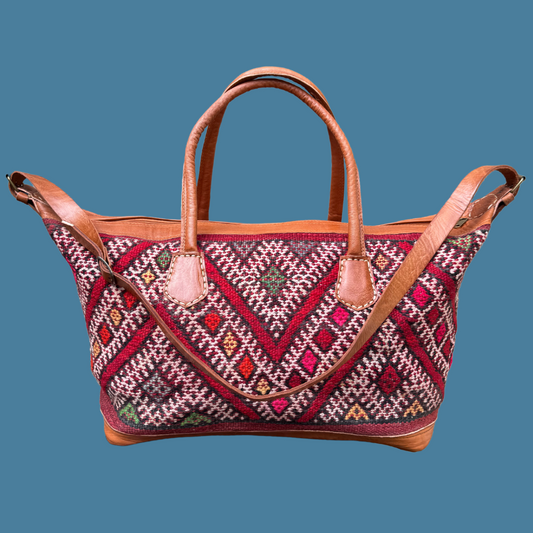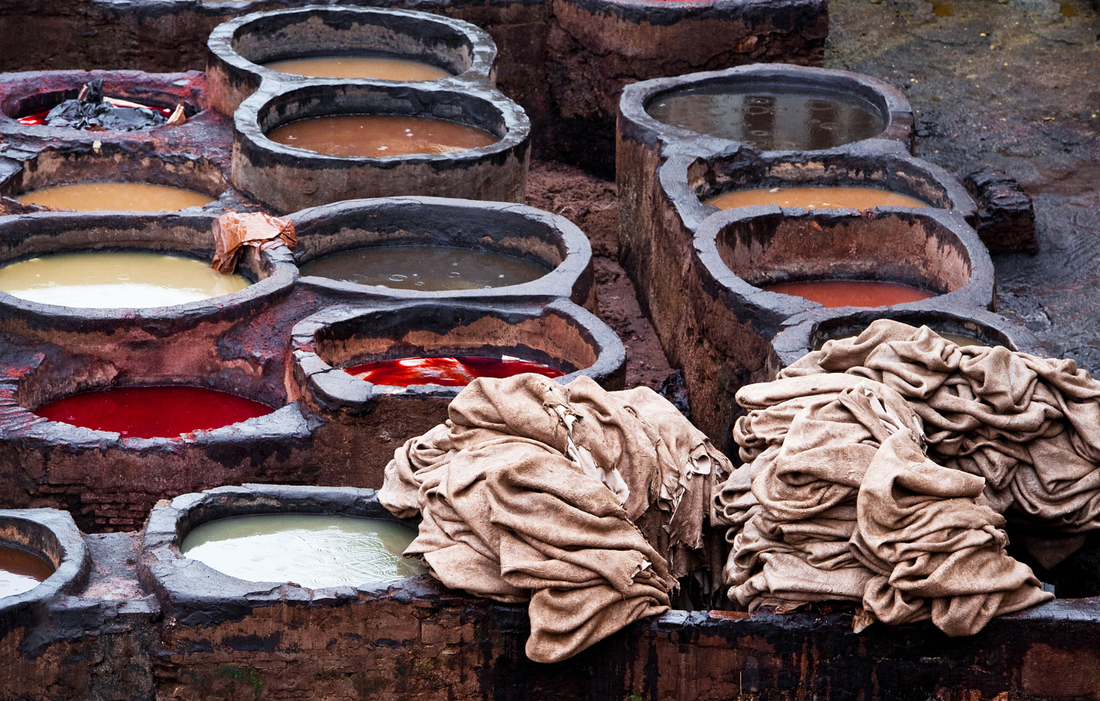
Moroccan Leather: Stunning with a Side of Temporary Stink
When it comes to leather, Morocco is a force to be reckoned with. Moroccan leather is known to be some of the highest quality leather in the world. The country has a long history of tanning leather, dating back to the 11th century in the city of Fez. The tanneries in Fez are still in operation today.

But before we dive into the nitty-gritty of the leather-making process, let's talk about the elephant in the room (or should I say, the donkey in the tannery). Yes, I'm talking about the infamous strong leather smell that comes with Moroccan leather. It's no secret that the tanneries can be quite fragrant, to put it politely. But trust me when I say, the smell is worth it for the end result. And fortunately, the smell dissipates with time.

The process of making Moroccan leather is a true labor of love. It's done entirely by hand, with tanners using natural dyes and traditional techniques passed down from generation to generation. The tanning process involves using natural products from pigeons and cattle, just to name a few, to soften and preserve the hides. Then it's dyed, stretched, and beaten to achieve the desired texture. The natural dyes used in the tanning process give the leather a rich, unique color that you simply can't get from synthetic dyes. Plus, the manual process ensures that each piece of leather is one-of-a-kind.

But it's not just the process that makes Moroccan leather so special, it's also the quality. Soufiane Belhayl searches the city of Marrakesh for the the best leather for Intertwined's leather products. The leather is thick and durable, yet supple and beautiful. It's the perfect material for our bags, placemats, pillows and napkin rings.
Note: The strong leather smell in our Moroccan products will disappear with time and use. Should you prefer to speed up the process, you can hang the item outside in indirect sunlight or apply baking soda to your item and put it in a sealed pillowcase, garbage bag, or large ziplock bag for 48 hours. Afterward, vacuum or wipe down with a soft cloth and enjoy!

